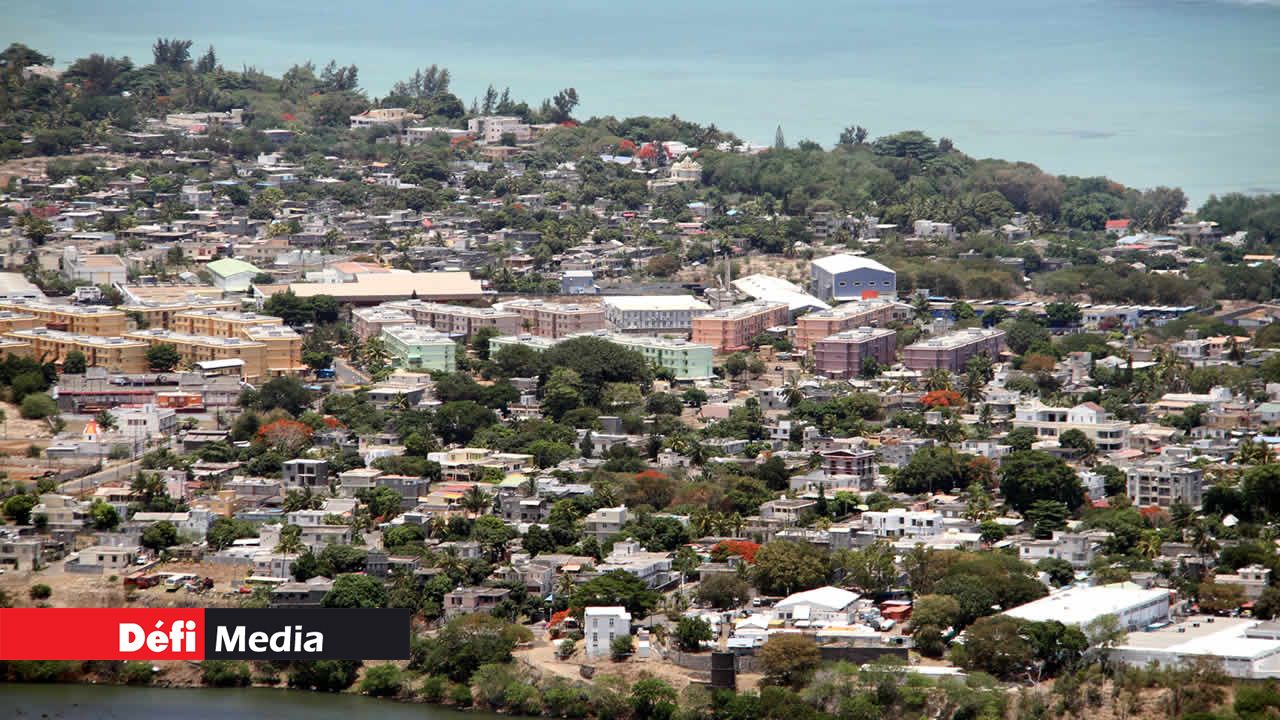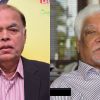
Le pays a connu depuis l’indépendance un remarquable développement économique qui a bénéficié à la population, mais il reste marqué par une concentration économique.
Publicité
1. Comment qualifiez-vous le développement économique de l'île Maurice depuis l'indépendance ?
Développement remarquable… jusqu’à récemment
 Trois sondés sur cinq trouvent « remarquable » le développement économique de l'île Maurice, soit d'une économie de monoculture sucrière à une économie de services. En effet, « for a tiny island state deprived of natural resources whose importance as a stop over in the trade route was annihilated when the Suez Canal opened, Mauritius has done remarkably well ». Précisément, « in 50 years, we have come a long way compared to many countries in Africa ». Certes, « the economic development since independence is remarkable, but over the years it has stagnated. The remarkable period seems to be over now. » Autrement dit, « reforms made in the 1980s helped the country make a good economic leap forward. However the economy has been stagnant over the last decade, in large part because of lack of cohesive actions by successive governments. »
Trois sondés sur cinq trouvent « remarquable » le développement économique de l'île Maurice, soit d'une économie de monoculture sucrière à une économie de services. En effet, « for a tiny island state deprived of natural resources whose importance as a stop over in the trade route was annihilated when the Suez Canal opened, Mauritius has done remarkably well ». Précisément, « in 50 years, we have come a long way compared to many countries in Africa ». Certes, « the economic development since independence is remarkable, but over the years it has stagnated. The remarkable period seems to be over now. » Autrement dit, « reforms made in the 1980s helped the country make a good economic leap forward. However the economy has been stagnant over the last decade, in large part because of lack of cohesive actions by successive governments. »
2. Qu'est-ce qui a le plus favorisé le développement économique de Maurice ?
|
Maurice a tiré profit des accords préférentiels
Quatre analystes sur cinq sont d'avis que le développement économique de Maurice a été possible grâce surtout aux accords internationaux tels que le Protocole sucre, l'Accord MultiFibre, l'AGOA et les accords de non-double imposition fiscale. Ainsi, « it is the opening to international trade which launched the path to meaningful economic development ». Parallèlement, « geopolitical events in the late 1980s and 1990s were favourable to Mauritius. Not so much now. Past strategies based on cheap labour and preferential markets are no longer relevant. Financial services based on low tax strategies are being threatened. » A l’opposé, « tourism grew without safety net, hence its world class standard today ».
3. Selon vous, l'Etat a joué dans le développement économique du pays un rôle...
L’Etat facilitateur
 Les analystes sont quasiment unanimes à dire que l'Etat a agi comme facilitateur (60%), voire de manière déterminante (37%), dans le développement économique du pays. L'Etat démontra, par exemple, « the right foresight in the negotiation of sugar quotas in the context of the Sugar Protocol ». Par la suite, « the state has facilitated development with the provision of the right business environment. But without the participation of enterprises, this success would not have been sustained. » Donc, « the private sector exploited the opportunities created by government. This has been a true Public Private Partnership. » Certains voient les choses dans une perspective différente : « Sadly the state has played a big role, and the big boys of the private sector followed the philosophy of a rent-seeking economy ».
Les analystes sont quasiment unanimes à dire que l'Etat a agi comme facilitateur (60%), voire de manière déterminante (37%), dans le développement économique du pays. L'Etat démontra, par exemple, « the right foresight in the negotiation of sugar quotas in the context of the Sugar Protocol ». Par la suite, « the state has facilitated development with the provision of the right business environment. But without the participation of enterprises, this success would not have been sustained. » Donc, « the private sector exploited the opportunities created by government. This has been a true Public Private Partnership. » Certains voient les choses dans une perspective différente : « Sadly the state has played a big role, and the big boys of the private sector followed the philosophy of a rent-seeking economy ».
4. Quel a été l'apport particulier du secteur privé dans le développement économique ?
|
L’esprit d’initiative du secteur privé
Pour 63% des sondés, le secteur privé a souvent fait preuve d’initiative pour développer l’économie du pays. On peut citer « the flair of local entrepreneurs with Hong Kong investors in the textile sector », puis « the reinvestment of the revenue from sugar exports in the tourism sector in the 1980s. The private sector also played a pivotal role in the development of the information and communication technology and the financial sectors. » Cependant, des analystes regrettent que « the private sector has always acted upon the cues of the government. Competitiveness is equal to rupee devaluation or intervention in the market to allow profits to look bigger. » De plus, « the private sector has most of the time invested only when tax rebates were being handed to it ».
5. Comment a évolué la structure économique du pays jusqu'ici ?
|
La concentration économique demeure
Pour 63% des répondants, la concentration économique du pays n’a pas diminué jusqu’à présent. Pour sûr, « new players have come in but the dominant actors are still here. You cannot blame the latter for their longevity if they are efficient, use the latest management techniques and pair with the best multinationals. » Les optimistes observent que « Mauritius witnessed the emergence of new groups of entrepreneurs and of an elite class of professionals », ainsi que « the emergence of business groups emanating from different ethnic groups ». Du reste, « the financial services sector has created a new breed of economic players ». En termes sectoriels, « no doubt there has been a diversification, but in essence it is mild as Mauritius still relies on a few sectors ».
6. Selon vous, le développement économique a été pour la population...
La population bénéficiaire du développment
|
Trois sondés sur cinq affirment que le développement économique a été davantage inclusif qu'inégal pour la population. A preuve, « the middle class base has widened since the 1980s, which means that the economic development has benefited to more people ». Certes, « the Gini coefficient may have deteriorated but overall the standard of living has increased for everyone ». De plus, « absolute poverty rates are quite low today although the gap between the rich and the middle class is growing faster ». Les autres s’inquiètent que « the gap between the rich and the poor is widening, and wealth concentration will cause further inequalities. The key to remedy this situation is to make capital and relevant training more widely available. »
7. A quand pensez-vous que Maurice peut devenir une économie à revenus élevés ?
 L’objectif de 2023 ne sera pas atteint La Banque mondiale définit une économie à revenus élevés comme celle ayant un revenu par tête de 12 236 dollars en 2016. Celui de Maurice était de USD 9 631 cette année-là. Le gouvernement actuel veut avoir un pays à revenus élevés en 2023. Quasiment tous les analystes n’y croient pas, citant « a mindset which is driven by taboos », puis « many bottlenecks to be cleared », ensuite « the weakness and lack of independence of our institutions », aussi « the lacklustre performance of many sectors », et finalement « the inadequate current policies ». Sans compter que « continual depreciation of the rupee would likely delay the process ». Pour relever les défis, « we must start planning for Industry 4.0, Internet of Things and Artificial Intelligence ».
L’objectif de 2023 ne sera pas atteint La Banque mondiale définit une économie à revenus élevés comme celle ayant un revenu par tête de 12 236 dollars en 2016. Celui de Maurice était de USD 9 631 cette année-là. Le gouvernement actuel veut avoir un pays à revenus élevés en 2023. Quasiment tous les analystes n’y croient pas, citant « a mindset which is driven by taboos », puis « many bottlenecks to be cleared », ensuite « the weakness and lack of independence of our institutions », aussi « the lacklustre performance of many sectors », et finalement « the inadequate current policies ». Sans compter que « continual depreciation of the rupee would likely delay the process ». Pour relever les défis, « we must start planning for Industry 4.0, Internet of Things and Artificial Intelligence ».
8. Croyez-vous que Maurice fera mieux que le Singapour d’aujourd’hui au plan économique dans les 50 prochaines années ?
 Cinquante ans de retard sur Singapour
Cinquante ans de retard sur Singapour
D’ici à 2068, Maurice ne sera même pas ce qu’est Singapour aujourd’hui au plan économique, estiment 93% des répondants. Pourtant, « the country has the right ingredients for the leap forward, but it will always be blocked by ethnical considerations ». De surcroît, « competence comes second best to family ties » alors même que « Mauritius does not have the required elites in both private and public sectors to match Singapore ». Le problème est que « politics has pervaded everything for the worst », d’autant que « Mauritius is a democracy unlike Singapore ». C’est dire que « there needs to be a drastic change in mindset towards politics, backing, attitude to corruption and improvement in productivity ».

Notre service WhatsApp. Vous êtes témoins d`un événement d`actualité ou d`une scène insolite? Envoyez-nous vos photos ou vidéos sur le 5 259 82 00 !





















